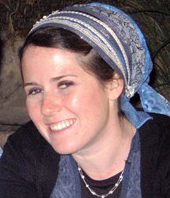"Dayenu" – Gila Meizer

One of the most memorable parts of the Seder for me is when all of my siblings begin to sing Dayenu, and my father stops to ask them about meaning of the song. “Had He brought us out of Egypt but not executed justice upon them – Dayenu; had He executed justice upon them but not upon their gods – Dayenu,” and so on. If you stop and think about the words, they are puzzling. Had God only given us their wealth and not parted the sea for us, could we have sung Dayenu? Without the parting of the Red Sea Bnei Yisrael would have been killed by the Egyptians who were chasing after them. The entire song is filled with similar examples: “Had He led us to Mount Sinai but not given us the Torah” – is that truly enough to sing Dayenu? What significance would there have been to Bnei Yisrael traveling in the desert, if they were not to receive the Torah? Would that have truly been enough? My father would answer as follows: even though each stage of the journey would not have sufficed in it of itself, given that each step was dependent on the next, it still is enough to give thanks. In other words, despite the fact that each stage is dependent on the subsequent one, it still presents us with a moral obligation to praise Hashem for the given stage.
My father explains an idea in Hallel (a prayer of praise to the Lord) in a similar fashion. At the end of Hallel we sing “This is the Lord's doing; it is marvelous in our eyes. This is the day which the Lord hath made; we will rejoice and be glad in it. Save us now, I beseech thee, O Lord: O Lord, I beseech thee, send now prosperity” (Psalms 118). One may ask – why is a cry for Hashem’s salvation included in a prayer that praises his name? Here too my father explains that we recite the Hallel when we have reached a point in which we are obligated to give thanks to Hashem for all the kindness that he has done for us, regardless of the fact that some issues remain unresolved. Many times we find ourselves in a situation in which praise is appropriate even though we are still in a time of need.
For me, this concept is directly linked to Torah learning. On the one hand, when I engage in Torah learning, I feel a great sense of gratitude and accomplishment for all the Torah that I have been privileged to learn so far. With that, I am aware of the great depths of the Torah that I have yet to acquire. Being able to recognize and appreciate how far I have come while understanding the long process ahead, motivates me to continue moving forward in learning. On the one hand, if we were to only focus on the objective amount that there is to learn, as the Torah is endless, we would find ourselves discouraged. Yet on the other hand, if we were only to focus on our personal achievements we would be misleading ourselves into thinking that we have mastered the Torah. For this reason it is crucial to recognize and appreciate our personal progress while remembering the tremendous amount that is yet to be accomplished.
The feelings that I have towards my personal learning I feel as well regarding women’s learning in general. While I am grateful and indebted to all the institutions and individuals who have worked to teach and advance Torah study for women, I recognize that there is still much more work to do.
Gila Mazer is, a student in the Midrasha's Metivta Program, and is in her third year of studies in Talmud and Educational Counseling at Bar-Ilan University. She is married with a son.



